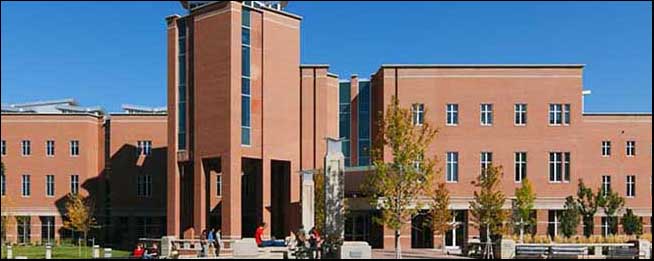The Center for Integrated Disaster Preparedness
Collaborative Planning, Integrative Response

The Center’s mission is advancing disaster health and medical preparedness by enhancing the coordination of existing resources across sectors and integrating them within local emergency management response systems and communities.
The University of Colorado, Department of Emergency Medicine Center for Integrated Disaster Preparedness (CIDP) is a unique university-based translational research and practice entity. The Center focuses on enhancing the disaster preparedness of healthcare and medical constituencies by creating researched outcome-based best practice guidance, National Incident Management System (NIMS) and Homeland Security Exercise and Evaluation Program (HSEEP) compliant education, and training outputs in support of Colorado's efforts towards collaborative disaster planning and integrated preparedness response and recovery systems.
To support and aid the broad spectrum of healthcare partners and assist the “medical and public health community” to integrate and enhance preparedness activities throughout the healthcare system in order to achieve high levels of readiness planning, preparation of people and resources, and to foster integrated, scalable healthcare delivery systems with the overall effect of enabling Colorado’s healthcare systems to function in a more efficient, resilient and coordinated manner.
Center Goal #1 Outcome
The outcome of collaborative planning can be assessed by the achievement levels in two key areas: (1) the level of overall disaster preparedness and (2) the depth and breathe of cross sector and cross-jurisdictional integration.
To enhance medical surge capacity and capabilities by integrating public health, hospitals and medical partners in preparedness, planning, response, and recovery strategies in order to strengthen community resiliency, integrate response and recovery systems, generate a framework for accountability and continuous quality improvement, and create seamless coordination between all levels of the healthcare and medical response system.
Center Goal #2 Outcome
The outcome of improvements in disaster preparedness capability is aided by the development and application of simplified decision-making processes that are standardized yet customized to local communities. Outcomes can be assessed through the implementation of such processes and accountability for them, and that enable and maintain a “state of readiness;” and incorporate the means to rapidly identify, evaluate and react to a wide spectrum of emergency conditions.
To facilitate improved cross-sector understandings and to identify common operating picture for collaboration between healthcare and disaster preparedness partners by strengthening healthcare partner relationships with regional healthcare coalitions and other regional coordinating collaboratives.
Center Goal #3 Outcome
The outcome of integrative response based on good planning is measured by the level of effective intra- and cross-sector integration, organization shown through the development and expansion of healthcare coalitions, and coordination of emergency response actions taken in response to an actual, ongoing event within the local emergency response system.